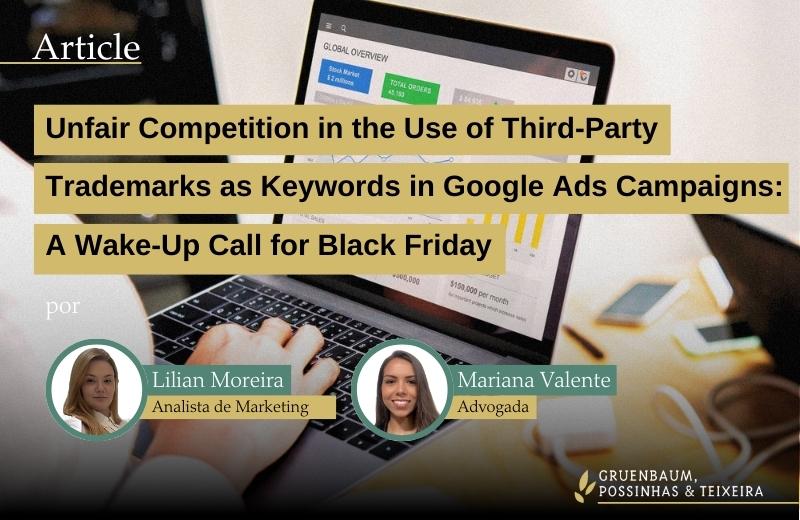Unfair Competition in the Use of Third-Party Trademarks as Keywords in Google Ads Campaigns: A Wake-Up Call for Black Friday

As Black Friday approaches, many consumers eagerly anticipate offers and discounts, while companies prepare to compete for their customers’ attention. Amidst this race, a practice often employed by some businesses has sparked debates and raised legal questions: the use of keywords including competitors’ trademarks in Google Ads campaigns. This strategy, common during periods of high search volume, may constitute deceptive behavior that undermines fair competition and affects consumer trust and experience.
Using Trademark Keywords in Google Ads: Free Competition or Territorial Encroachment?
When a company uses a competitor’s trademark as a keyword in a Google Ads campaign, it aims to capture traffic that would otherwise be directed to that brand. Imagine, for instance, a consumer searching for a specific brand, driven by trust or preference for its products, who ends up being redirected to the competitor’s website upon clicking an ad displayed as a search result. This practice often intensifies during events like Black Friday, when consumers are focused on finding deals from familiar brands.
Although using third-party trademark keywords is not explicitly prohibited by Google Ads’ terms of service, it raises ethical concerns and questions about unfair competition. Brazilian legislation and Intellectual Property guidelines protect registered trademarks from misuse that may confuse consumers. Redirecting users to competitors’ websites through searches containing brand names can be interpreted as commercial “parasitism,” where one company exploits the recognition and value built by another.
Legal Consequences
Under Brazilian jurisprudence, unfair competition involves acts that create unethical disputes and violate the rights of another company. Using a competitor’s registered trademark to attract consumers often constitutes unfair competition and may result in civil liability for the company employing such keywords.
The Brazilian Superior Court of Justice (STJ) has addressed this issue, consistently ruling against this practice:
“[…] the use of a registered trademark as a keyword in sponsored links infringes industrial property legislation, constituting client diversion and unfair competition, prohibited under Article 195, III and V of the Industrial Property Law and Article 10 bis of the Paris Convention for the Protection of Industrial Property. Using a competitor’s trademark as a keyword to redirect consumers to the infringing competitor’s link can create confusion about the offered products or services. Moreover, this unfair practice dilutes the brand’s market presence and undermines its advertising function by reducing visibility.”
Additionally, the Reserved Chambers for Business Law of the São Paulo State Court (TJSP) have issued a directive stating that:
“The use of a nominative element of a third-party registered trademark, with sufficient distinctiveness, in the same business sector as a search term for advertising via search engine providers constitutes an act of unfair competition.”
Moreover, the National Council for Advertising Self-Regulation (CONAR) and the Consumer Protection Code require advertisements to be clear, objective, and non-deceptive. Consequently, this practice may also violate consumer rights, particularly when consumers are redirected to a company other than the one they intended to find.
Negative Keywords as a Preventative Measure
Broad negative keyword matching can be a solution for companies affected by such unfair practices. This approach prevents competitors from using third-party registered trademarks as keywords in sponsored ads. By employing this tool, businesses can block the display of third-party ads in searches containing their brand-related terms.
Through extrajudicial or judicial actions, companies can request the broad negative matching of keywords involving their trademark, reducing the risk of consumers being misled to competitors’ websites. Additionally, by limiting the visibility of competitor ads using registered trademark keywords, businesses can reinforce their market positioning and promote a more transparent and coherent search experience for consumers.
